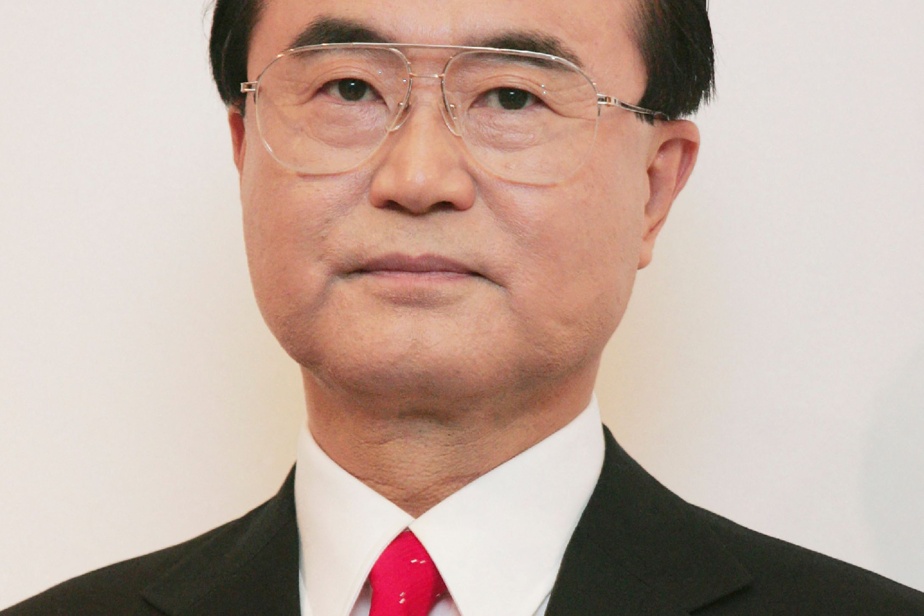(Tokyo) The former president of a Japanese company sponsoring the Tokyo 2020 Olympic Games and two collaborators received suspended prison sentences on Friday, the first convictions by Japanese justice in the context of a burgeoning corruption case around the event.
The scandal began to break out last summer in Japan, a year after the 2020 Olympics which were finally held in 2021 and almost entirely behind closed doors because of the pandemic.
Several companies in the country have since been splashed and the affair has even compromised the candidacy of Sapporo (northern Japan) for the 2030 Winter Olympics.
Former Aoki Holdings chairman Hironori Aoki, 84, was given a 30-month suspended prison sentence on Friday, a spokesman for the Tokyo Magistrate’s Court told AFP.
He was found guilty of having paid bribes to ensure his company, a Japanese chain of business suits stores, to become an official partner of the 2020 Olympics. He pleaded guilty in December, according to Japanese media.
The prosecution had requested 30 months in prison against him, according to local media. Two of his former collaborators at Aoki Holdings also received suspended prison sentences, but shorter.
The three men were arrested last August along with Haruyuki Takahashi, a former member of the Tokyo Games organizing committee.
Mr. Takahashi is suspected of having received in 2017 the equivalent of more than 320,000 euros in bribes from Aoki Holdings, which became the following year an official partner of the 2020 Olympics. His trial has not yet started and he claims his innocence, according to the press.
“These criminal acts damaged society’s confidence in the smooth running of the Games, which attracted worldwide attention and were important for the country,” Judge Kenji Yasunaga said Friday in remarks reported by the Jiji agency.
“We take this judgment seriously and we will do everything we can” to prevent such a case from happening again and to “regain the trust of our customers”, reacted Friday an Aoki Holdings spokeswoman interviewed by the AFP.
Asked Friday by AFP, the Japanese Olympic Committee had not reacted for the moment to this first judgment.
Other arrests over similar grievances have taken place in recent months, including the then chairman of major Japanese publishing company Kadokawa and the former boss of ad agency ADK, who pleaded guilty in February.
Dentsu, Japan’s largest advertising agency, is also in the crosshairs of investigators, who suspect it along with other companies of having rigged calls for tenders for preparation contracts linked to the 2020 Olympics which amounted to 40 billion. yen (some 270 million euros at the current exchange rate).
Haruyuki Takahashi had also previously worked at Dentsu. Another former Olympics official, Yasuo Mori, was also arrested in February in connection with this separate rigged bid case.
Suspicions of corruption have also long floated over the conditions for awarding the 2020 Olympics to the Japanese capital by the International Olympic Committee (IOC) in 2013.
In March 2019, the president of the Japanese Olympic Committee Tsunekazu Takeda resigned a few months after being indicted by French justice, which is investigating this case.
Mr. Takeda is suspected of having remunerated Black Tidings, a company based in Singapore, before and after the designation of the Japanese capital by the IOC as the host city of the 2020 Olympics.
According to French investigators, Black Tidings was just an “empty shell” that led to Papa Massata Diack, son of former Senegalese world athletics boss and influential ex-IOC member Lamine Diack, who died at the end of 2021.
The legal scandals affecting the Tokyo Olympics have also affected Sapporo’s bid for the 2030 Winter Olympics.
The capital of the large northern Japanese island of Hokkaido has suspended its promotional activities around this candidacy since last December, and does not now rule out aiming for the 2034 Winter Olympics instead.
